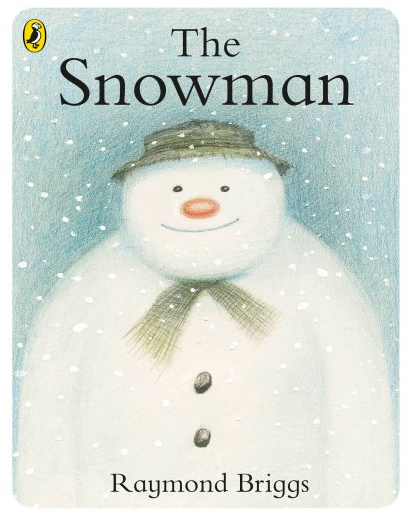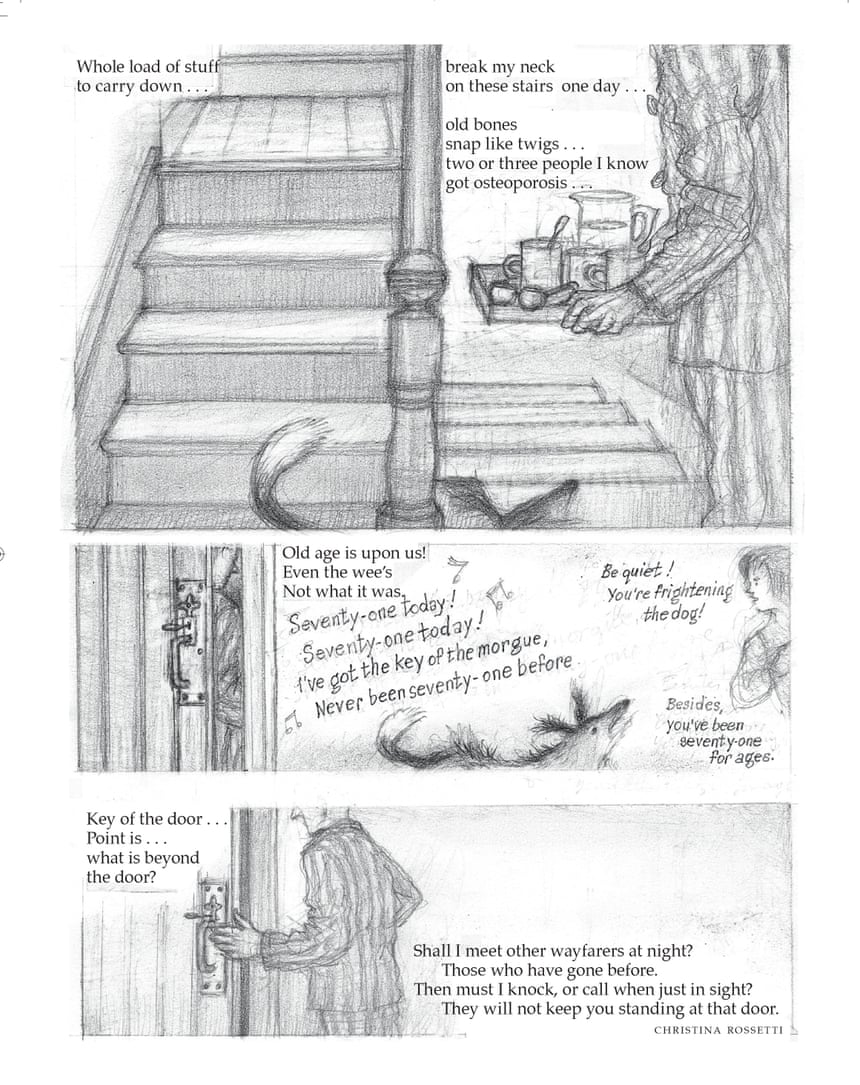Raymond Briggs 1934 – 2022
Renowned for his hugely successful picture books, AOI Patron Raymond Briggs who died on 9th August, embraced warmth and relationships in his works, but also loss and death, avoiding sentimentality, and he never denied being a fairly curmudgeonly person.
Born in London in 1934, Raymond Briggs studied at Wimbledon School of Art and the Slade School of Art. He initially worked in advertising, but began to win acclaim as a children’s book illustrator as well as teaching illustration at Brighton College of Art.

Winning the Kate Greenaway medal in 1966 for The Mother Goose Treasury, brought him to the book buying public’s attention. Since then he wrote and illustrated many innovative and successful books in his distinctive pencil crayon and gouache style, including Father Christmas (1973), the infamous Fungus the Bogeyman (1977), and the wordless The Snowman (1978). He became an AOI Patron in 1995.
Each title was very different form the previous one. The Snowman followed Fungus the Bogeyman, “It was done as a reaction,” he said “I’d been two years immersed in all this slime and muck and wanted to do something different. Something lighter and quicker, less laborious, no words, just for the sake of a change.”

His long-time editor, Julia MacRae, recalled that she was overwhelmed with emotion when Briggs first showed her The Snowman artwork. “He didn’t like to be in the room when I was looking at his work, he’d go outside. He came back in and he found me in floods of tears and said, ‘You don’t like it?’ and I said, ‘Raymond, they’re just tears of pure joy because it’s just so beautiful’.”
Many of his books were translated into different languages and adapted into films, plays and TV cartoons, with The Snowman – even though it does not reference the season and was intended to introduce children to the concept of mortality – becoming a staple of Christmas television, broadcast every year since 1984. “The idea was clean, nice and silent. I don’t have happy endings,” Briggs told Radio Times. “I create what seems natural and inevitable. The snowman melts, my parents died, animals die, flowers die. Everything does. There’s nothing particularly gloomy about it. It’s a fact of life.”
In 1998, Ethel & Ernest, ostensibly a biography of his parents’ seemingly ordinary lives, was published - telling the story of how his milkman father met his mother, a lady’s maid, and their subsequent lives, living in the same house for forty-one years, bemused by their son’s decision to go to art school. Close elements of Briggs’ own life, including the schizophrenia of a girlfriend, makes the work also autobiographical, and he told the BBC that depicting his mother’s death in hospital was hard to draw. “I kept doing those in bits and coming back to them because it was a bit upsetting to do. I’d do about half an hour and then come back the next day and do a bit more. But it was grim her [Briggs’ mother] being on that trolley at St Thomas’ hospital.”
Ethel & Ernest was adapted into an animated film released in 2016, of which The Independent said ‘in its own understated way, the film is deeply moving.’
Raymond Briggs wrote books aimed adults also: When the Wind Blows (1982), a dark satire on nuclear war, which was adapted for a play and a film, and The Tin Pot Foreign General and The Old Iron Woman (1984), an attack on the Falklands war. In 2019 Time for Lights Out, an autobiographical meditation on ageing and death was published by Jonathan Cape (below).

In a 2018 BBC documentary Briggs revealed that although living in his partner’s house, every day he drove to his old house and collects the two bottles of milk which are delivered there. “I pick up the milk. Got to support the milk trade because my dad was a milkman.” Unsentimental to the last.
Back to News Page
